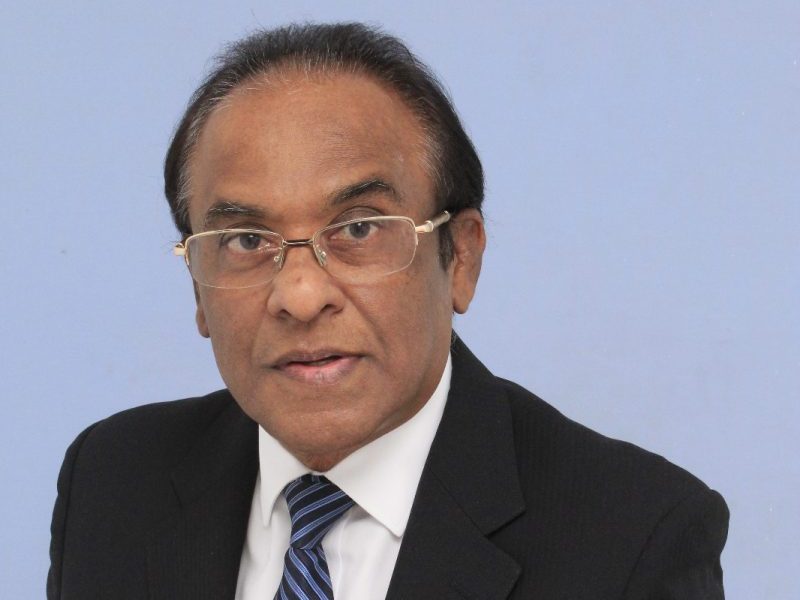The Hotels Association of Sri Lanka (THASL) celebrated its 59th Annual General Meeting (AGM) recently, with President M. Shanthikumar delivering a compelling address on the state of the tourism industry. Speaking to policymakers, industry leaders, and key stakeholders, he outlined a bold vision for reviving Sri Lanka’s tourism sector while addressing its pressing challenges and untapped potential.
In his address, Shanthikumar emphasized the urgent need for innovative policies to replace outdated models that are no longer effective. “The tourism industry needs new, robust policies to be adopted. The same old models on the books may not work,” he said, urging the Government to implement exceptional financial and developmental strategies to revitalize the industry.
Highlighting the economic importance of the sector, Shanthikumar noted that Sri Lanka’s hotel industry has attracted $15 billion in investments and employs 70% of the tourism workforce. He pointed out that tourism is the second-largest net foreign exchange earner for the country, surpassing apparel. “The ripple effects of our industry extend from grassroots communities to Government coffers,” he said, underscoring its vast economic impact.
A key appeal made during the AGM was for the Government to grant tourism export status, recognizing the sector’s ability to generate significant foreign exchange. “We seek your support to award tourism export status, which would benefit the industry and its stakeholders tremendously,” Shanthikumar urged. With proper strategic handling, he expressed optimism that the industry could achieve $10 billion in revenue in the coming years.
Shanthikumar also addressed the growing concerns about the informal accommodation sector, which he noted has grown to rival the formal sector in room numbers. He called for stricter regulation, including proper licensing, adherence to safety standards, and tax compliance. “The SME sector plays a critical role, as does the informal sector, but they must operate within a framework that ensures health and safety compliance while contributing their share to the tax net,” he explained.
Another critical issue highlighted was the acute shortage of skilled and unskilled workers in the hospitality sector. Shanthikumar proposed large-scale training programs through the Sri Lanka Institute of Tourism and Hotel Management (SLITHM), focusing on empowering women and rural youth. “The female workforce in hospitality is still far below regional levels. By prioritizing human capital development, we can provide job opportunities close to villages and hometowns, enabling rural youth and women to thrive,” he said.
Marketing and promotions were also identified as a major bottleneck, with Shanthikumar lamenting the absence of a global tourism campaign for over 15 years. “Time is of the essence. Competing destinations like the Maldives, Vietnam, and Thailand are running highly effective campaigns in key source markets. We need to act immediately if we are to achieve the proposed arrival targets,” he stressed, urging Tourism Minister Vijitha Herath to expedite efforts in this area.
Shanthikumar also took the opportunity to call for equitable treatment for the hospitality sector, highlighting the burdens of increased liquor license fees and turnover-based taxes. “Local Government authorities are demanding hotels pay a further 1% tax on turnover, while industries such as banks, supermarkets, and hospitals only pay Rs. 6,000 annually. Hotels, which generate significant foreign exchange, should not be penalized and discriminated against,” he argued.
To ensure better coordination in policy-making, Shanthikumar proposed the establishment of an inter-ministerial committee led by the President. “Tourism activities span across 18 Ministries. Coordinated decision-making is essential for the sector’s growth and sustainability,” he said.
The THASL President commended Tourism Minister Vijitha Herath and SLTDA Chairman Buddhika Hewawasam for their efforts while stressing the importance of comprehensive policy work to sustain the momentum. “We are optimistic about the potential of Sri Lanka’s tourism sector. With the right strategies, we can achieve a thriving and sustainable industry,” he concluded.
The 59th AGM of THASL served as a clarion call for transformative action, aiming to position Sri Lanka as a competitive, sustainable, and globally attractive destination.



